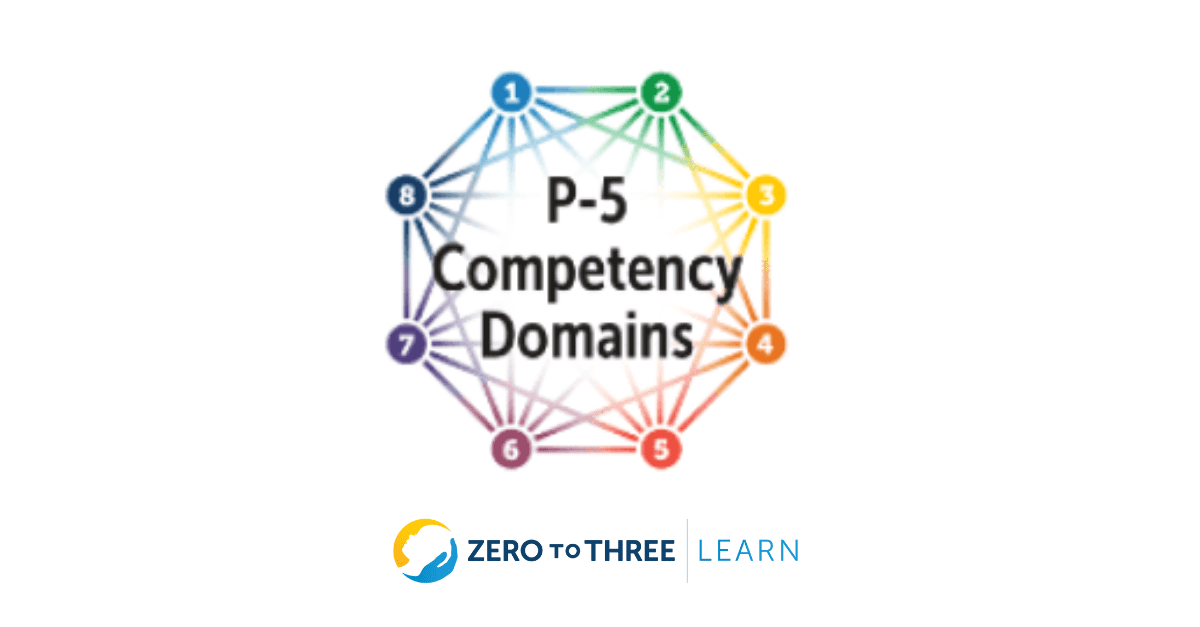The ZERO TO THREE Competencies for Prenatal to Age 5 (P-5) Professionals provide a universal set of competencies necessary for all prenatal-5 service providers, supervisors, and managers.
The P-5 Competencies have a broad purpose to strengthen professional competence on shared fundamental concepts and to facilitate interdisciplinary partnerships and coordinated service delivery. They also provide a foundation for collaboration and professional development to deepen and support work within and across early childhood disciplines.
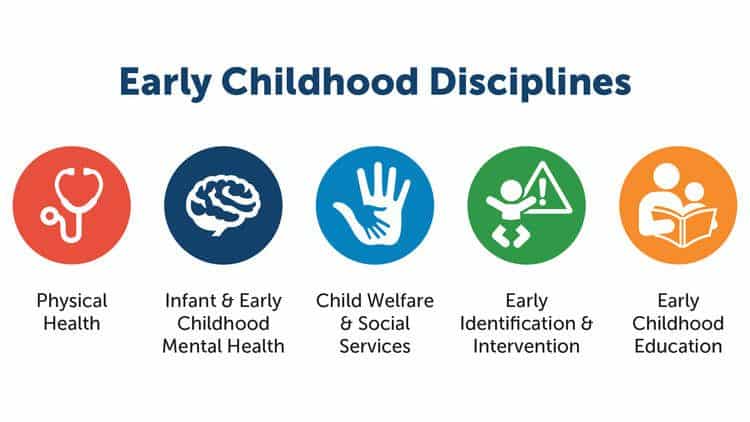
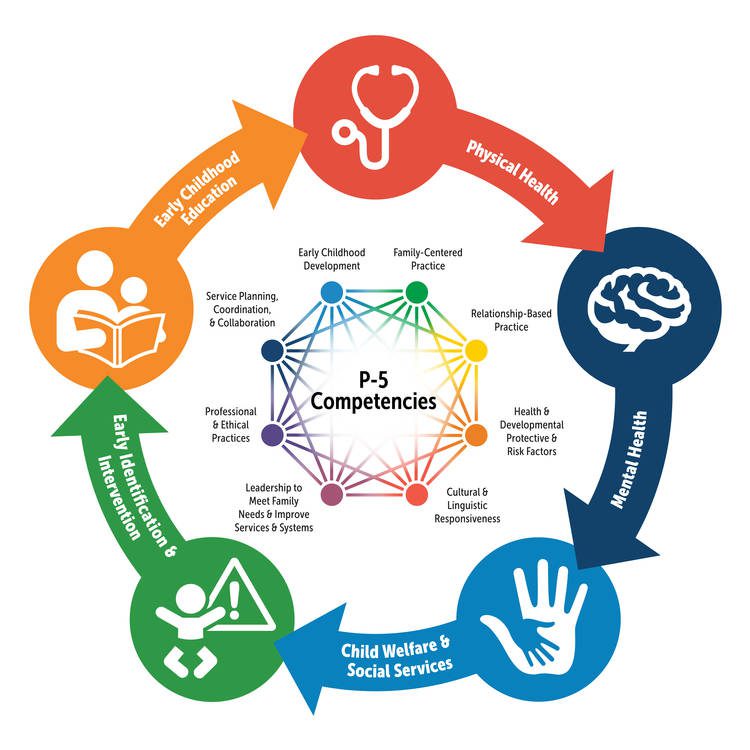
P-5 Competency Domains
The P-5 Competencies consist of eight competency domains. Each domain provides a base for core knowledge, skills, and attitudes necessary for professionals in all disciplines working with young children and their families. Each of the P-5 Competency domains are equally important, and they build upon and reinforce one another. All of ZERO TO THREE’s professional development is categorized by the P-5 Competencies’ 8 domains.
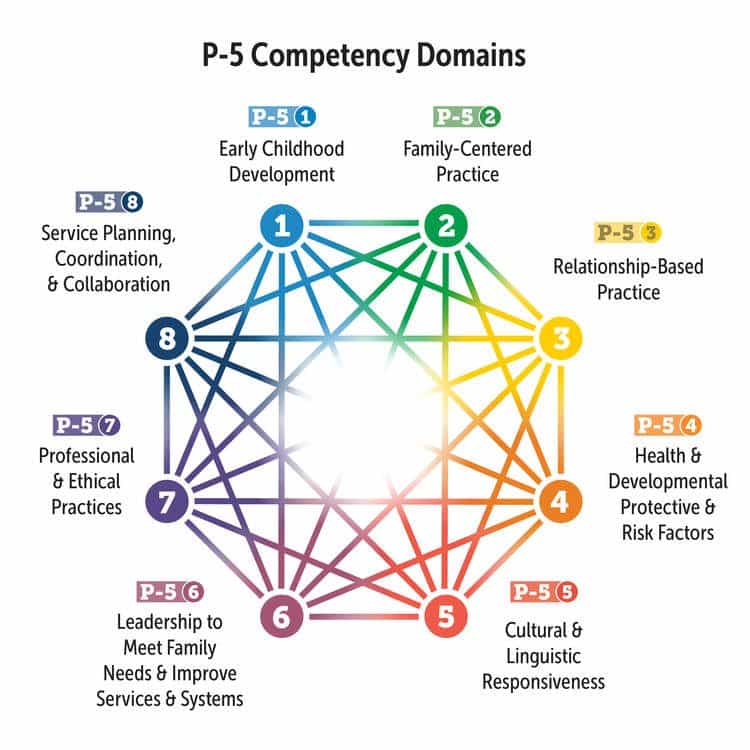
What is contained in each of the 8 domains?
- Early Childhood Development: how development unfolds from conception to age 5 across social, emotional, cognitive, language, physical, and motor development and ways to responsively support it
- Family-Centered Practice: why and how to effectively partner with families to support children’s health and development by building positive, supportive relationships
- Relationship-Based Practice: why relationships are central to supporting the development of children, and how to create responsive and productive relationships with children, families, and other service providers
- Health and Development Risk and Protective Factors: how and why multiple factors—including community, economic, political, and cultural influences—support or impede healthy development and the quality of relationships; and ways to work with families to identify strengths and use them as resources to reinforce protective factors, help manage challenges, and reduce risks
- Cultural and Linguistic Responsiveness: how culture and language have profound effects on child and family development, ways to raise awareness of our own assumptions about cultural attitudes and values, and strategies to integrate culturally and linguistically responsive methods
- Leadership to Meet Family Needs and Improve Services and Systems: why and how to exercise leadership in advocacy, policy, and sharing knowledge and resources with families, colleagues, and the general public to promote optimal outcomes for expectant parents, young children, and their families and caregivers
- Professional and Ethical Practices: why and how to follow and apply high-quality practices consistent with ethical and legal standards, behaviors, requirements, and obligations; and improving practices based on evidence, emerging knowledge, and promising approaches
- Service Planning, Coordination, and Collaboration: why effective and responsive service provision requires planning, including a coordinated effort with other sectors and service providers; and how to take a strength- and relationship-based approach in partnerships
A Basis for the Critical Competencies
The P-5 Competencies also provide a foundation for the ZERO TO THREE Critical Competencies for Infant-Toddler Educators™.
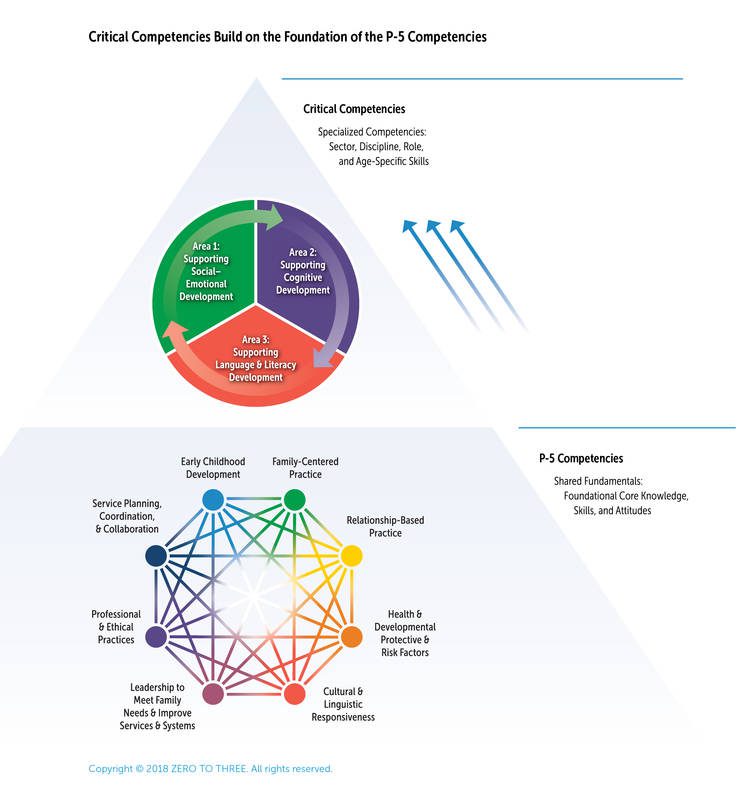
Explore ZERO TO THREE’s Critical Competencies for Infant-Toddler Educators™.

